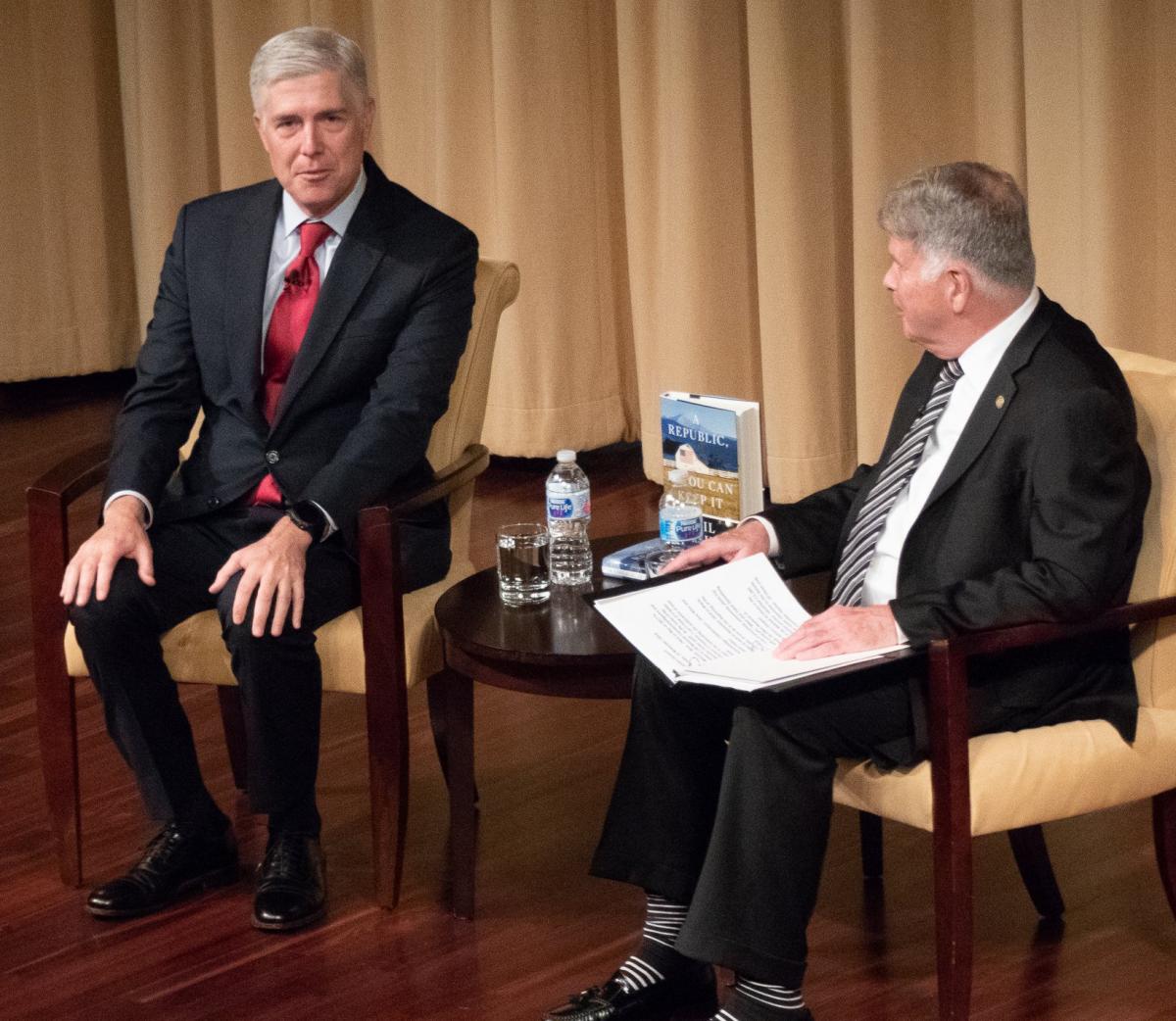
Justice Gorsuch Reflects on the Constitution
By James Worsham | National Archives News
WASHINGTON, September 25, 2019 — Supreme Court Associate Justice Neil Gorsuch says that the separation of powers that the Constitution created for the young United States of America ensures against any of the three branches becoming dominant. But, he says, that doesn’t mean that each branch will act wisely all the time.
“I don’t think we understand or appreciate . . . maybe as much as we might, how the separation of powers contributes to our liberty, and the genius of it,” Gorsuch said during an appearance at the National Archives in Washington on September 16.
Gorsuch came to the Archives to talk about his latest book, A Republic, If You Can Keep It.
Archivist of the United States David S. Ferriero engaged Gorsuch in a conversation about the book. “For me, the most important part of the book, personally and professionally, is the part on citizenship and civility,” Ferriero said.
Gorsuch replied: “I don’t know when civility became a bad word.” The point of a republic is that everyone can have a point of view, he said, adding that "57 percent of young persons today don’t want to get involved in public service because of the nature of our public discourse today.
In discussing the courts, Gorsuch said that courts could make mistakes. He cited the Dred Scott decision by the Supreme Court in 1857. In that decision, the justices ruled unanimously that white persons had the right to own black persons as slaves. The decision cited the Fifth Amendment’s “due process” clause, but, Gorsuch said, that amendment makes no mention of such a right. “It’s not there,” he said.
The Dred Scott decision, he said, was an example of courts trying to legislate, in this case, seeking to prevent a civil war, which began anyway in 1861.
Over the years, he said, courts have sought to engage in “judicial lawmaking”—and made big mistakes. “Judges make rotten politicians,” he observed.
Gorsuch also lamented the low level of civic awareness in the nation.
He cited figures showing that only about-third of Americans could name all three branches of the Federal Government, and one-third could only name one branch. And while he said most Americans could identify the First and Fourth Amendments, not many were familiar with other amendments.
At the end of the conversation, Gorsuch reflected on memory and legacy. “We will all be forgotten soon enough,” he said, but “what really matters is this great country and our Constitution. Those things endure. And the joy in life comes from serving something greater than yourself.”
Gorsuch was sworn in as an Associate Justice of the Supreme Court on April 10, 2017, succeeding Antonin Scalia, who died in office the year before. He is a graduate of Columbia University, Harvard Law School, and the University of Oxford. He was a judge on the 10th Circuit Court of Appeals in Denver for 10 years when he was chosen by President Donald Trump for the high court.
A recording of the entire program may be viewed on the National Archives YouTube channel.
